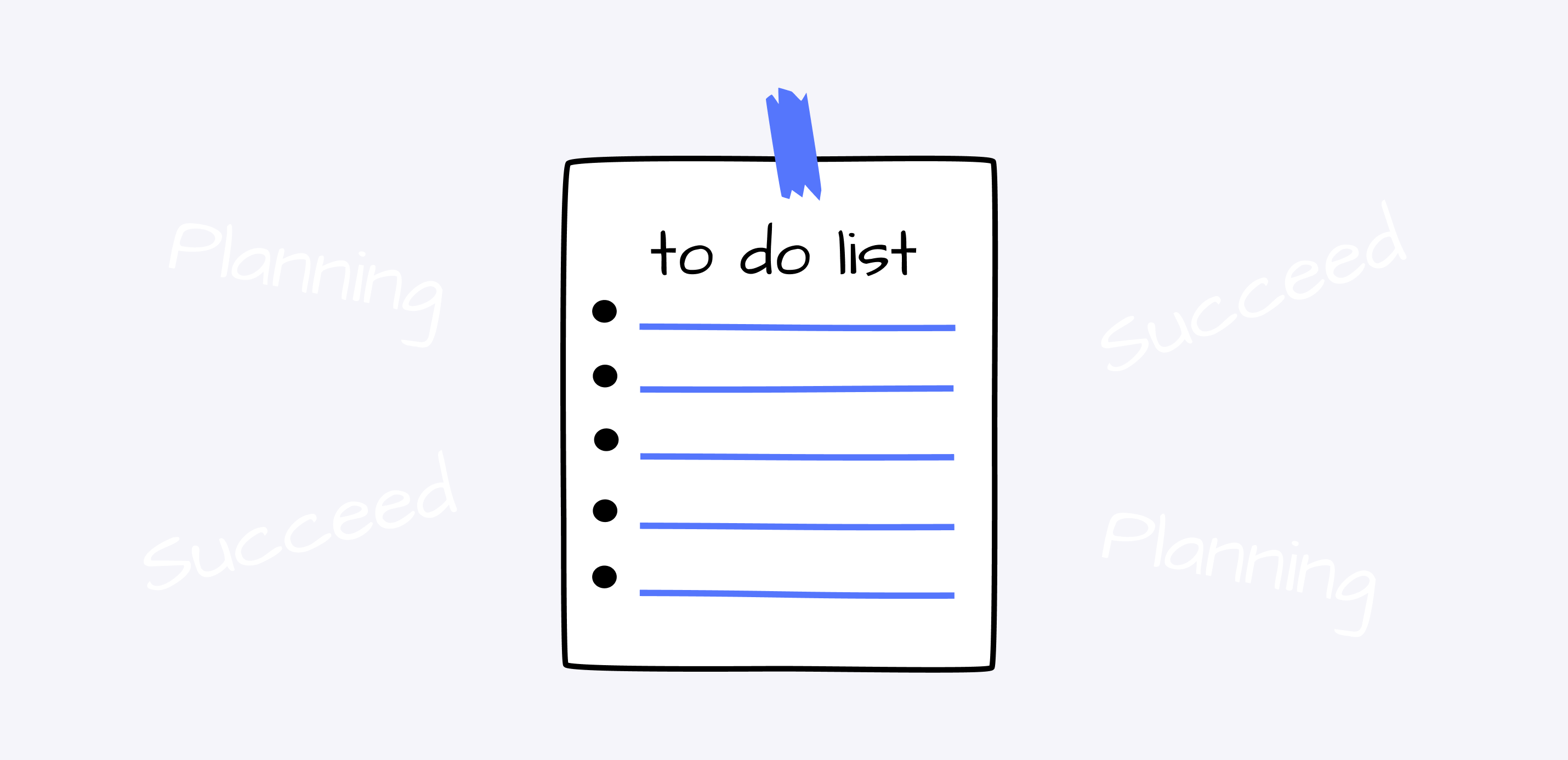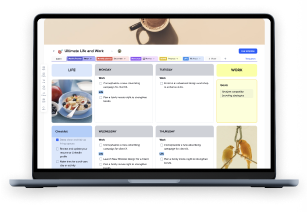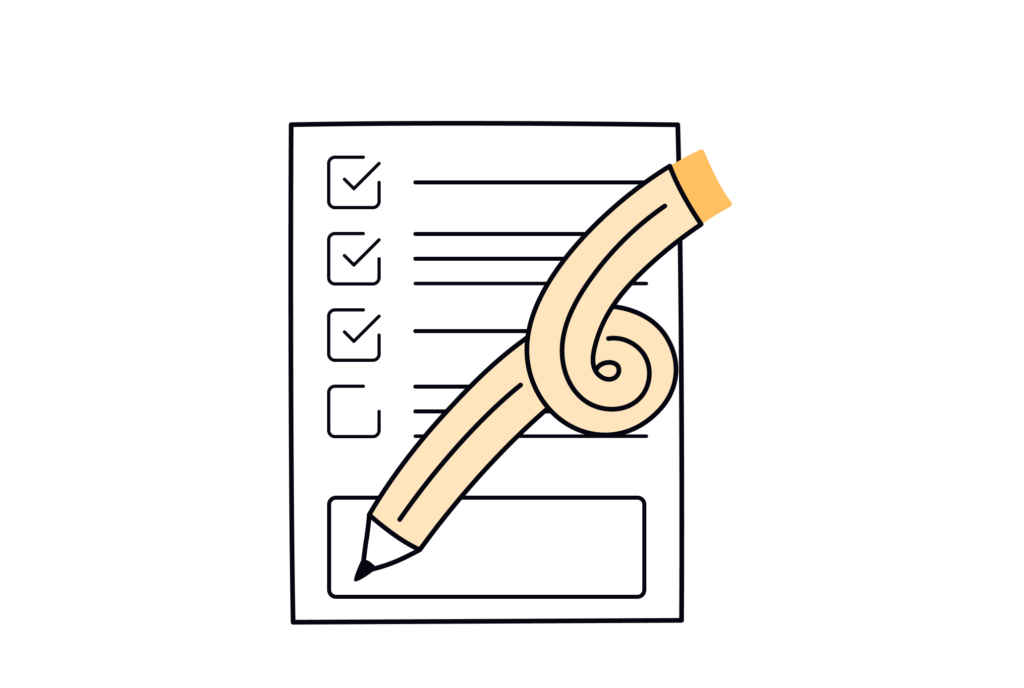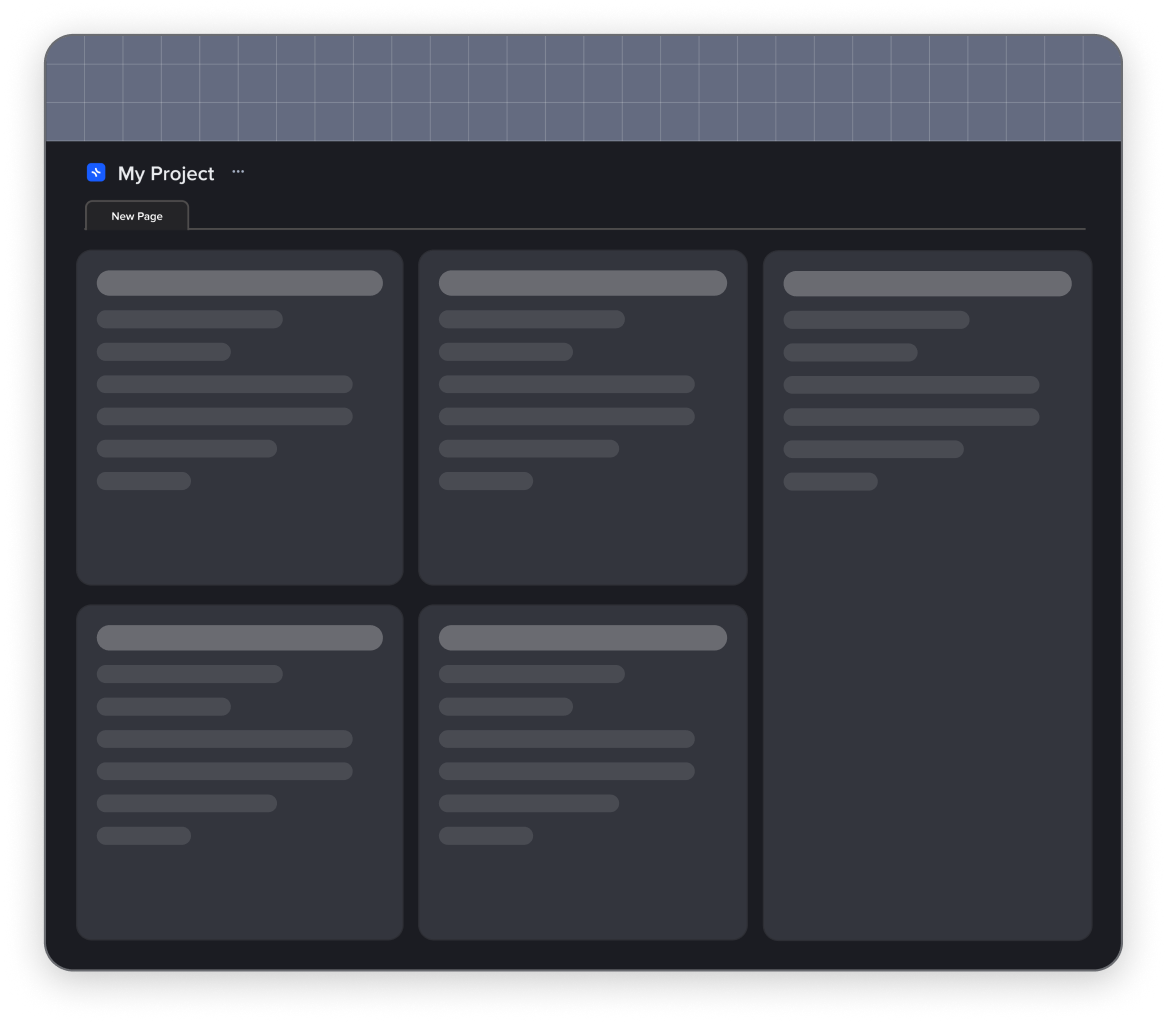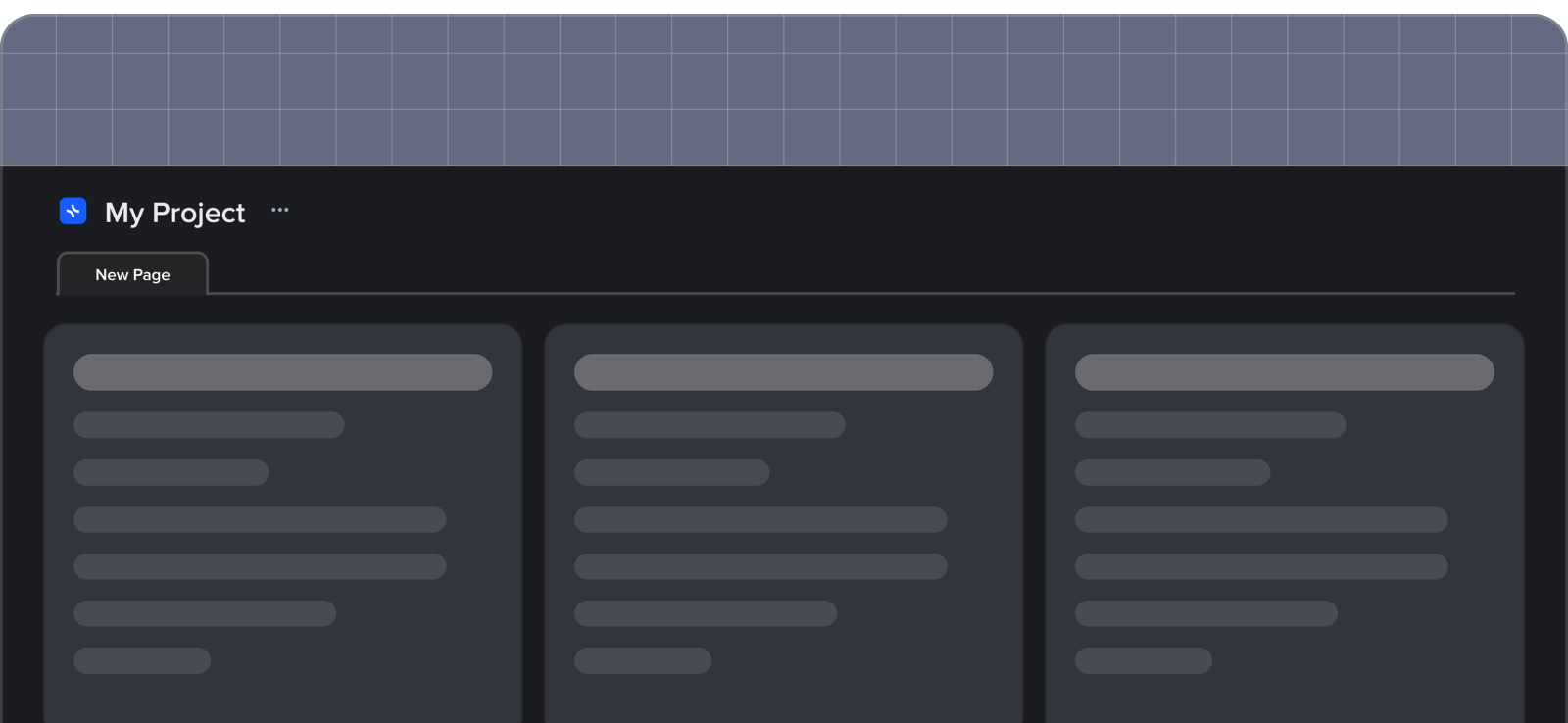Personal planning is an approach where you systematically plan what is possible, what is relevant, and what is achievable in different spheres of your life. It might not guarantee that you won’t struggle with difficulties along the way, but it guarantees that their impact will be minimal.
Remember that Friends episode when Phoebe says she doesn’t even have a ‘pla’? One way or another, we all have plans. The only problem is that we keep them in mind, and there’s no adequate structure and consistency, so they might be more harmful than good. And it’s pretty hard to stick to something that isn’t defined clearly.
If planning your life has never been your strong skill, let’s try again, but this time for real and with the new workable tool.
If you have no idea what it is and how to implement it successfully, let’s try to make your first experience as nice as possible and as productive as possible, so it becomes a part of your routine.
What is personal planning?

Personal planning includes reflecting on your dreams, possibilities, and current circumstances to set goals that will lead you to where you want to be in a non-traumatic, enjoyable, and fruitful way.
If there will be a journey in any case, isn’t it better to have it planned and every step and stage outlined? A clear understanding of what awaits you is half of the deal and is good for your mental health, future, and overall progress.
Usually, when talking about personal planning, the first thing to pop up in people’s minds is professional growth. However, the approach is so useful and result-oriented that you may easily apply it to other spheres of life too.
Personal planning and personal development
Personal planning is at the intersection of career and individual growth, and creating these two together will help you notice every important thing and avoid a certain bias towards one of these spheres.
In this article, we offer you a wide interpretation of personal planning without separating “smaller” planning like personal financial planning or personal retirement planning.
Every sphere of our lives should be in harmony with others. Working on yourself to grow professionally and neglecting your non-work-related interests will doubtfully lead you somewhere nice.
Even if you try your best to leave work at work and not to bring your private affairs to the office, these two spheres still define a lot in your life and have a tremendous effect on each other. That’s why setting your career goals without considering your personal life and needs probably won’t be the best decision and vice versa. If our main goal is a healthy lifestyle on all levels, we better not separate them entirely. Additionally, a lot from these two crosses so that you may benefit hugely.
Why should I start personal planning?

What is the first step for starting a new project or enterprise? No doubt, a plan. Being effective and productive would be impossible or much harder without detailed planning for the short and long term, without plans A, B, C, etc.
That approach has long become usual for many companies, but even those people who have successfully adopted it at work rarely use it for their personal benefit. We want to show you that it’s actually good for you on many levels.
Implementing the best business practices into your life is a win-win strategy. Millions of people use them constantly, so it’s easy to find different use cases and learn from their experiences. You won’t be a pioneer testing everything on yourself. Others have already divided what is good and upgraded it, and what is bad and got rid of it.
A strict plan established according to your relevant and specific needs and inclinations will safely guide you through problems, hesitations, and dead ends. However, fret not that there are days or weeks of anything but planning in front of you.
A development plan doesn’t have to be a million pages long. It’s more about a clear understanding of what you want to achieve, what would be a success for you, what skills you would like to acquire along the way, how exactly you will measure progress, what new feature you will develop, etc.
The person who completes their goals is never the same one who started. It’s always someone stronger, more knowledgeable, and with more polished (often brand-new) skills. More importantly, in the end, you are always more confident because you’ve just finished something big.
The sad truth is that our motivation decreases after some time. Rarely do we stay as concentrated on our project as we were at the beginning. Personal planning is a reminder and inspiration to keep moving forward to your goals. Also, it allows you to track your progress.
A person who sticks to their plan is less likely to be distracted by something that might ruin the current progress. Knowing where and why you are moving is a strong motivation to avoid a destructive routine.
Many a time, burnout is a consequence of an unorganized work routine. Chaos never brings something useful to our lives except for more chaos, leading to unhealthy mental well-being.
A definite long-term plan is the best way out of a chaotic workflow and towards healthy relationships with what you do. A time-bound personal plan is a sure way to establish a solid ground beneath your feet so that the moment life starts to present you with surprises, you can withstand with ease and still smile, knowing your next move.
Also, you may check some tips and techniques on how to be organized in your life so that making your dreams come true will be even easier.
Personal development plan: what to do and how?

Imagine yourself being a company owner or a manager seeking a new team member. Who would you prefer to work with – a person with a strict plan, who knows what they want and where they are heading, or someone who simply flows with the stream?
The answer is pretty obvious. Those with set professional goals are going to beat those who rely on improvisation and luck. To accomplish goals means to know what you’re going to do.
Peronal development is yet another project for you. It will be challenging, it will require all of your skills and knowledge, all the motivation you’re capable of, all the focus you can devote, all the support you can get, your unique vision, and much more.
Personal development planning might be especially challenging for those who are new to the whole concept. So, here are the steps you will need to take in detail.
Contemplate your past and what you have already achieved
When reflecting on your career, the first step is to stop for a moment and think. It might take a couple of days to remember everything that is significant.
Go over all of your achievements and where they have led you so far. Can you call them a success? Did you get what you wanted?
Your own plan for the future requires you to understand your past mistakes and successes. Your personal development goals require you to understand your current capacity, potential, and skills.
You may try a SWOT Analysis to define your strengths, weaknesses, opportunities, and current threats. And every time you feel like you can’t continue implementing your personal development plan, use the approach again.
Use the xTiles SWOT Analysis template to make it faster.
What future do you see for yourself?
Now, you will need to answer a fundamental question – where do you see yourself in a year, five, or ten years? Think about what person you want to become. Seems like there’s a very long path ahead of you? Don’t worry. With thoughtful personal planning, it will be easy to handle.
The secret is to find the right consistency of smaller goals that will lead you to your dream through years or months. The optimal period is the year. That’s why we recommend you using the xTiles Goals for the year template.
“However, set deadline very carefully and when you’re ready. Also, it’s not shameful to postpone for later if something doesn’t go according to your personal development plan. Long-term goals need patience. After all, we can’t control many things. Just try to enjoy the process.
Learn how to prioritize
You may get a very long list of what you will need to reach after the previous step, but not all of that is actually necessary. Prioritizing is the key at this stage. It’s the skill that will guarantee you that everything that needs to be done will be done.
Think about what is important and relevant right now, what doesn’t make sense anymore, and what better to be postponed until you have some of the new skills you’re about to develop.
Your current action plan has to contain only relevant points. If something isn’t important right now, let it wait.
Don’t sacrifice your personal development goals for your career
When planning for personal development, keep in mind that your career is important, but not more important than your life.
Don’t set unrealistic goals that might cause burnout or spoil your relationships with your loved ones. You may try our SMART goals template to make sure you’re about to plan something specific, measurable, achievable, relevant, and timely.
Good habits are a way to success
A healthy routine and good habits are part of your success too. Once they are established, you will be unstoppable. There will be nothing to distract you from reaching your goals, and your days won’t look like a struggle to drink 8 glasses of water or make 10 000 steps.
You may use our 100 morning routine ideas to find what works best for you and what will help you achieve your goals.
When measuring progress, don’t forget about all the good habits you have obtained. Even though it might seem like new habits are way less important than new skills or when you achieve milestones, they are the spine of your personal development plan. They are small bricks you use to become a better you.
Besides, they will have a positive impact on your overall progress and your health.
Divide your personal goals into smaller ones
If there are some grandiose goals to achieve, it’s better to set sub-goals that will ease the process and allow you to see progress. Breaking your plan down into smaller goals is also useful if all of your goals look superb and hard to manage.
A clear plan is usually the one that contains many details and comments. The one where you have the only point like ‘Win the world’ is likely to bring you zero inspiration and insights into what you’re about to do.
There will be complications
Personal development planning also requires thinking about difficulties and obstacles that might occur during the process. Think of your regular blockers and how you may avoid them or minimize their effect on your goals.
Also, prepare yourself mentally for possible delays. You might not manage everything by the due date, and that’s okay. Your personal development plan isn’t about pressure, and reaching your goals isn’t a speed race.
Track what you do, and you will still see progress. Just be ready that it might not be linear.
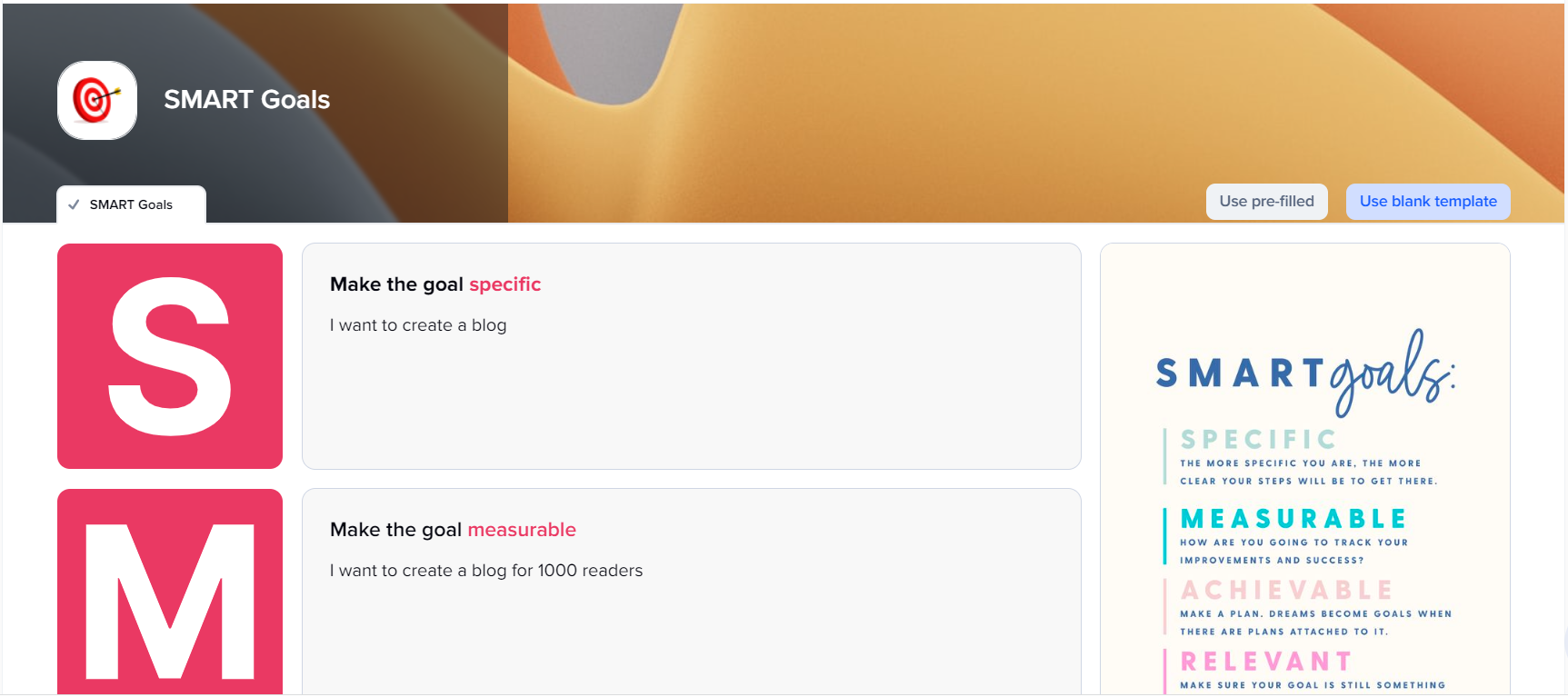
Personal financial planning
Now that you’ve outlined your goals and strivings, you may start using personal planning for arranging your personal affairs. We suggest beginning with your budget because it’s connected to your professional growth and status. Additionally, it defines all spheres of your life.
If the question “Where’s the money?” isn’t a quote from a popular movie but a part of your day, then reviewing your current budget and planning a new good one is a must.

Taking steps is always harder than contemplating them. However, personal development sometimes is impossible without an intelligently planned budget.
Let’s start planning your personal budget, so you can see that it greatly impacts your well-being and all of your goals.
Additionally, it will help you track whether your income is relevant to the lifestyle you want to have. If not, personal professional planning may be the next step.
- We would like to suggest you begin with the xTiles Budget tracker template, which is created to help you manage your expenses. It will quickly show you the pitfalls on your way to financial success and stability (if there are some) and expenses that might have negative effects without you realizing that.
- Now that you’ve seen the real picture of what is going on with your finances, it will be much easier to establish relevant and realistic goals. The lifestyle you want to have defines your financial goals and behavior.
- There are many suggestions for how much money a person should put towards their income. Probably, you have even heard about the popular “50 30 20” budgeting rule, where “20” is the percentage of your income after taxes you need to save.
- However, we won’t suggest any strict numbers simply because you’re the one who decides what amount is comfortable for you.
- Also, when planning a personal budget, you must prioritize your goals too. This step is one of the hardest. We all like to award ourselves for small achievements or cheer ourselves up after bad days.
- You need to find the balance between indulging yourself and saving money wisely. You may even get a separate category for expenses like that. In case there were no treats this week or month, simply turn this money into regular savings.
- Your routine is also important for your financial stability and personal plan.
- If you want to achieve your goals, prepare to spend money, especially if these goals are about education, new knowledge, practice, etc.
- If we look at billionaires’ morning routines, we will see that the most wealthy people in the world are very consistent and demanding of themselves. That is one more reason to encourage harmonious self-development.
- Last but not least, your emergency fund. No one expects something bad to happen, but it’s better to be safe than sorry. So, except for regular savings, put some money towards a separate category that will stay untouchable unless you need to handle some issues.
- Again, choose the amount that is comfortable for you right now (it may grow over time together with your income).

Summing up
In conclusion, embarking on a personal development journey through structured planning is a pivotal step towards achieving success and fulfillment in life. B
y embracing the principles of personal development planning, individuals can navigate their aspirations with clarity, set achievable goals, and cultivate a holistic approach to growth.
Whether it’s professional advancement, financial stability, or personal well-being, a well-defined personal development plan serves as a compass, guiding individuals through challenges while maximizing their potential.
Remember, the journey of personal development is not only about reaching destinations but also about the transformative process that shapes us into better versions of ourselves. So, let’s embrace personal development planning as a tool for progress, resilience, and ultimately, a life well-lived.
FAQ
What is a personal development plan?
A personal development plan involves systematically organizing and setting achievable goals in various aspects of life, aiming to minimize the impact of difficulties.
Why should I start a personal development plan?
A personal development plan (PDP) is essential for effective goal achievement, providing structure and consistency to prevent harm from undefined plans.
How do I implement a personal development plan successfully?
Successfully implementing a personal development plan involves reflecting on dreams, possibilities, and circumstances to set achievable goals, creating a roadmap for personal and professional growth.
What is the significance of a personal development plan?
A personal development plan integrates career and individual growth, ensuring a holistic approach to goal setting and avoiding biases toward specific areas of life.
What role does personal financial planning play in a personal development plan?
Personal financial planning is integral to a personal development plan (PDP), providing a foundation for professional growth and overall well-being by managing expenses, setting realistic goals, and establishing emergency funds.


